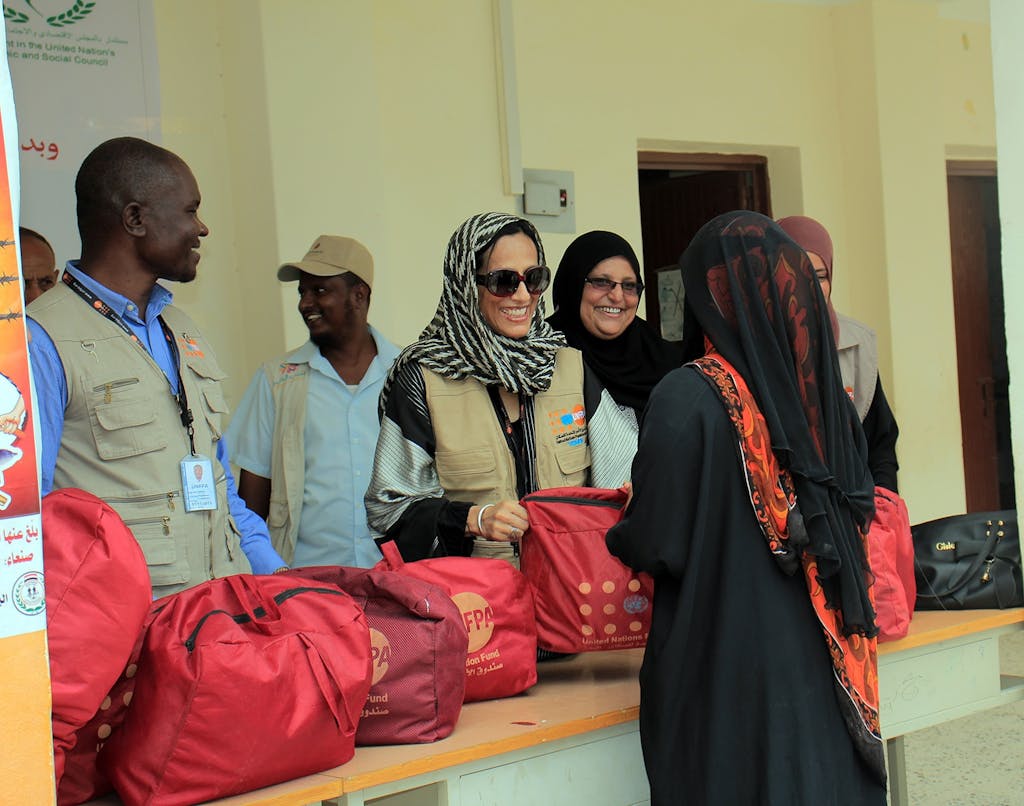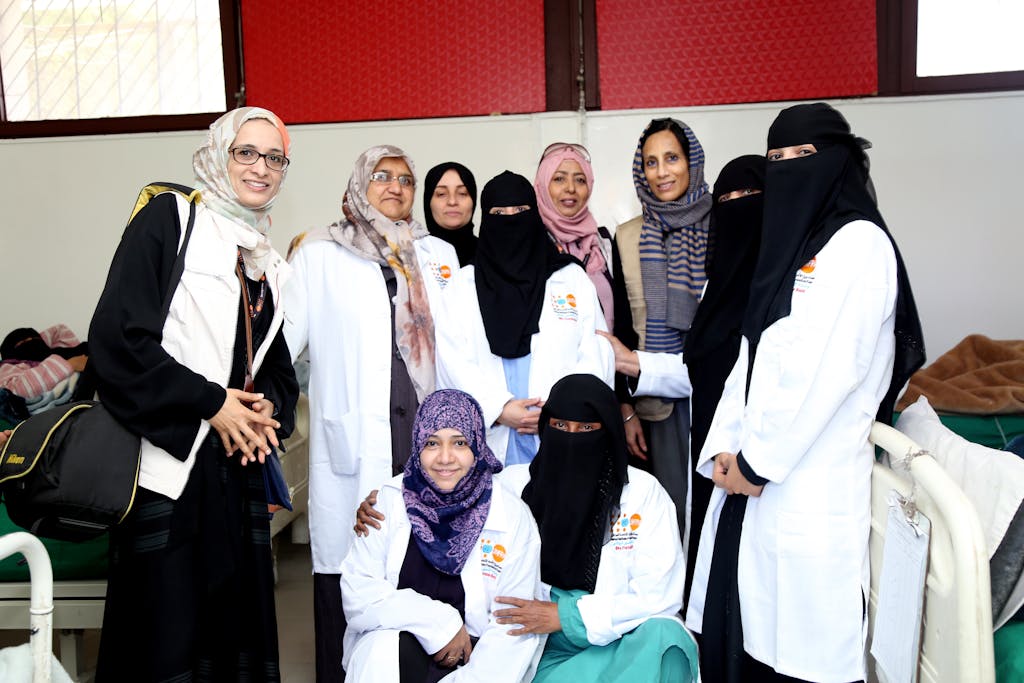The severity of Yemen’s humanitarian crisis is inconceivable for many of us — nearly 22 million people in the war-torn country desperately need humanitarian aid and protection. Yet for millions of people in Yemen, it is their reality. Girls and women are particularly vulnerable in emergency situations, which is why UNFPA works to help them – providing health services for pregnant women, women’s hygiene supplies, and counseling for gender-based violence, among other efforts.
As this dire situation continues to unravel, it’s easy to get overwhelmed and give up hope. But as UNFPA representative in Yemen, Anjali Sen, reminds us, what we do makes a difference. Humanitarian aid saves lives, and every day, humanitarian workers from 183 UN agencies and partners in Yemen are working to deliver food, provide lifesaving vaccines, protect women and children on the front lines, and much more. Our support can help them help more families.
We talked to Anjali Sen, a UNFPA representative to Yemen, about her work on the ground protecting girls and women – and how she remains hopeful in crisis.
Why do you work in the humanitarian sector?
Anjali Sen: During the 2015 Nepal earthquake, I was very engaged with the humanitarian response. There I saw firsthand how big the needs and vulnerabilities of women and girls are in such situations. It came alive to me the difference you can make in a person’s life with even the simplest form of assistance.
When you work in the humanitarian sector, you actually feel you help to make a difference or save a life. Whether its providing hygiene items to a woman fleeing conflict or running a mobile clinic in an area where hospitals have been damaged due to a natural disaster, you are able to reach out, reach those most in need, and make a tangible difference.
When the position in Yemen came up, a country with the biggest humanitarian crisis in the world, yet with so little global attention, I wanted to take on that challenge and at least try to make a small difference.
DONATE TO THE YEMEN HUMANITARIAN FUND
What is the biggest lesson you have learned working as a humanitarian?
AS: In a humanitarian situation, like in Yemen, the situation is so dynamic. The issues you have to address change almost daily. For instance, we would be trying to address the biggest cholera outbreak in the world, and then you get an acute emergency in the western coast, with thousands of people being displaced.
In the midst of all this, the people who are actually suffering, especially the women and girls show so much courage and resilience because they have hope – they have hope for a better future, hope to achieving their dreams and aspirations. If you lose hope as a humanitarian, in any crisis or disaster, then you cannot serve the people who need your help.
I have learned that it is so important to remain positive and hopeful, and never give up on anyone or any situation.

Distributing dignity kits with hygiene items to displaced girls in Aden. ©UNFPA Yemen
What is the most rewarding part of your job?
AS: At UNFPA, working to meet the reproductive health needs of women and girls and address issues of gender-based violence can be most sensitive and challenging, but the stories of the life you help save, or the woman who was raped but now is running her own business make it worth it. Every time I meet a woman or a girl who has endured so much suffering but still manages to have a smile on her face – that makes my job rewarding.
I remember a visit to one of the shelters we support in Al Hudaydah, a 15-year-old girl had been married to an old man by her family to overcome the economic hardships of the conflict. She had been abused and ill-treated by her husband that she had taken the courage to run away and find a police station, that sent her to the shelter. At the shelter, she was learning to make handicrafts and wanted to go back to school and get a degree. Such stories really show the resilience and courage of women and girls. I always say to my friends and colleagues, it is not us who empower them but they empower us.
What are challenges that humanitarian workers face on the job?
AS: The challenges you face in a humanitarian crisis always vary, depending on whether it’s a natural disaster or a conflict. Most often, like in the case of Yemen, which is a conflict, you find that with all the assistance you have, you cannot reach the people who are in need due to factors beyond your control. If we fail them, the lives of so many women and girls are at risk, which can mean the difference between life and death. This is why, as I mentioned earlier, it is so important as a humanitarian worker to remain hopeful and never give up on any situation.

With midwives and doctors at the only fistula clinic in Sana’a established by UNFPA at Al Thoraa Hosptial, Sana’a ©UNFPA Yemen
Some people doubt they can make a difference in the world today. What is your message to them?
AS: Always believe that even the smallest thing you do to help makes a difference in someone’s life and never give up on that hope.
Donate to the Yemen Humanitarian Fund to help UN agencies and humanitarian NGOs in Yemen assist the most vulnerable communities and people.
Photo Credit: ©UNFPA Yemen



 View All Blog Posts
View All Blog Posts
